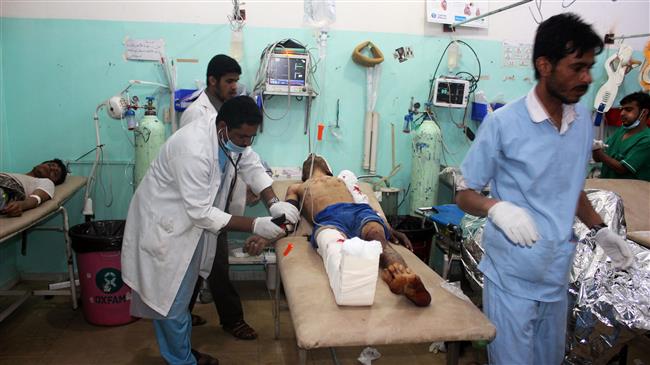
RNA - "I am particularly concerned about the recent decline of commercial food imports through the Red Sea ports," said Mark Lowcock, the UN emergency relief coordinator, in a statement read out to a Geneva briefing on Friday.
After three years of a Saudi-led campaign against Yemen, the United Nations says a record 22.2 million Yemenis are in need of food aid, including 8.4 million threatened by severe hunger.
On November 6, Saudi Arabia announced that it was shutting down Yemen’s air, sea, and land borders, after Yemeni fighters targeted an international airport near the Saudi capital with a cruise missile in retaliation for the devastating campaign. The blockade has had a severe impact on Yemen, which traditionally imports 90 percent of its food. Under international pressure the coalition has reportedly lifted the blockade, but tightened ship inspections.
Lowcock said commercial food and fuel imports remained "well short of pre-blockade averages."
"If conditions do not improve, a further 10 million people will fall into this category by the end of the year," he warned.
Confidence among commercial shippers has eroded due to delays, "including as a result of inspections undertaken by the Saudi-led coalition after these vessels have been cleared by UNVIM," Lowcock said, referring to a UN verification system.
According to Press TV, the UN aid chief also called on the government of former Yemeni President Abd Rabbuh Mansur Hadi "to take active steps to boost commercial imports of food, fuel and humanitarian supplies through all Yemen’s ports."
Since March 2015, the Saudi regime has been heavily bombarding Yemen as part of a brutal campaign against its impoverished southern neighbor in an attempt to reinstall Yemen’s former president Abd Rabbuh Mansur Hadi and crush the Houthi Ansarullah movement, which is in control of large parts of Yemen, including the capital. The Saudi campaign, however, has failed to achieve its goals.
The Yemeni Ministry of Human Rights announced in a statement on March 25 that the Saudi-led war had left 600,000 civilians dead and injured since March 2015.
The Saudi aggression has also taken a heavy toll on the country's facilities and infrastructure, destroying many hospitals, schools, and factories.
847/940